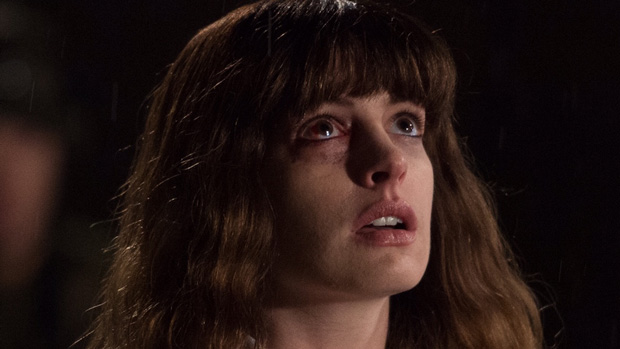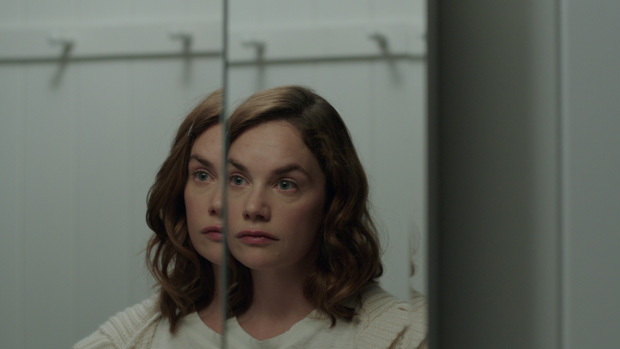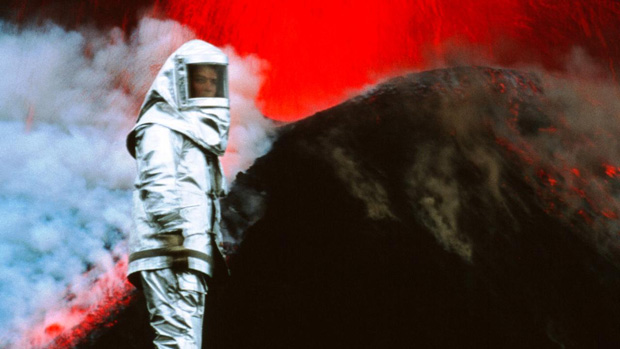Toronto International Film Festival: An Overview
For most of the 29 years in which I’ve been going there, my reaction to the Toronto International Film Festival is like the parable of the six blind men and the elephant. You know it: The fellow by the beast’s leg concludes that an elephant is like a pillar, the one by its tail says it’s like a rope; etc. The thing is so big that no two observers are likely to have the same reaction because they’re only going to experience a small part of it.
In recent years, TIFF has also come to resemble a poorly assembled burrito. You know when you bite into one of those and all the cheese and guacamole and cilantro are stuffed down at one end instead of spread evenly throughout, leaving you with nothing but naked beans for most of it?
Although TIFF lasts for 11 days, all of the press attention is focused on the first weekend. I don’t know if the studios bring in all their talent (which is what they like to call the actors and directors they want you to interview) just for opening weekend because most of the out-of-town press tends to leave on Monday, or if the press leaves on Monday because all the movie stars are gone. But if you’re there with a press pass, the first day of the festival is enough to make Sophie’s choice look simple. All she had to do was flip a coin. I had to chose from two new movies by Jim Jarmusch, including Gimme Danger, his documentary on Iggy and the Stooges, and new films by Paul Verhoeven, Pedro Almodovar, Ken Loach, Olivier Assayas, the Dardenne Brothers, Lee Tamahori, Kelly Reichardt, Marco Bellocchio, Thomas Vinterberg, Hirokazu Kore-eda, and Studio Ghibli. Those are only the movies that I wanted to see because of their directors; there were at least another dozen that were well received at Cannes or otherwise had buzz.
The next few days, by contrast, there was so little I wanted to see that I considered leaving early.
With so much to choose from, decision-making at TIFF is a hair-puller. At any given moment in time throughout those 11 days, there are as many as 27 screenings to pick from, not counting screenings set up outside the festival by studio publicists. But more often than not this year, I managed to decide wrong, missing most of the movies that got the best reception. Wouldn’t you think that a new adaptation of a Philip Roth novel starring and directed by Ewan MacGregor would be worth checking out? (It wasn’t.) Wouldn’t you assume that Michael Fassbender, one of the respectable cinema’s hottest properties, wouldn’t waste his time on a punk script? (You’d be wrong, even though Brendan Gleeson was also in it.)
And so it went. Some were more disappointing than others. I have long been a fan of Terence Davies, whose films based on his memories of his youth in England (Distant Voices Still Lives, The Long Day Closes) have never really found an audience in the US. A Quiet Passion, his biography of Emily Dickinson, takes a 180-degree turn from his usual naturalism, featuring dialogue so archly and persistently epigrammatic that at points it felt like a bad Monty Python skit; an hour of it was all I could take. (With so much to see, there’s no reason to sit though a film you’re not enjoying.)
Among those I did enjoy:
LOVING—Based on the story of the Virginia couple who were charged in 1958 with the crime of getting married—he was white, she wasn’t—it’s an early front-runner for as many Oscars as the Academy can nominate it for. Writer-director Jeff Nichols (Mud, Midnight Special) minimizes the drama of the legal struggle (it went to the Supreme Court) to focus on the lives of Richard and Mildred Loving, a rural couple whose goal of a simple life was blocked by a judge’s demand that they move out of state or go to prison. For such a dramatic situation, it’s a quiet movie with little dialogue, carried by the stoic determination of an unrecognizable Joel Edgarton and the wounded eyes of Ruth Negga. It’s this year’s Brooklyn, a deeply moving film about the recent past that resonates forcefully in modern America. Tentative opening date is November 4.

Colossal
COLOSSAL—Not since the early heyday of Charlie Kaufman have I come across a movie that takes an utterly novel premise and manages to keep it moving in unexpected directions. Anne Hathaway stars as a party girl who takes a break from the Manhattan high life to go to her small-town home and clear her head. There she hooks up with an old friend (Jason Sudekis) who owns a bar and she discovers that she has something to do with a giant monster terrorizing Seoul, Korea. No, I didn’t lose a block of text and segue into another movie there. Making his American debut, Spanish fantasy specialist Nacho Vigalondo keeps things unpredictable right up to the end credits. I’m not sure that the ending justifies everything that went before it and may be overrating it on the basis of sheer novelty, but I look forward to seeing it a second time. Expect it in theaters sometime in 2017.
LBJ—Following on the heels of HBO’s All the Way, with Bryan Cranston as the 36th president, Ron Reiner’s movie is the kind of Oscar bait that I try to avoid at TIFF, simply because I’ll have so many other chances to see it. But Lyndon B. Johnson was such a fascinating figure that I couldn’t resist. He’s played here by Woody Harrelson, who has the Texas twang but otherwise is buried under an uncomfortable amount of makeup and prosthetics. At under 100 minutes it’s a short film, focusing on Johnson’s uncomfortable vice-presidency and the weeks after JFK’s assassination. It’s biggest flaw is one it shares with the HBO film, leaving out a Senate career in which Johnson was arguably the most effective majority leader of the century. As yet it has no distributor, but I would expect it in theaters before Christmas.
THE SIXTH BEATLE made an interesting counterweight to Ron Howard’s current Eight Days a Week. Documentarians Tony Guma and John Rose set out to tell the story of Sam Leach, the Liverpool concert promoter who arguably was instrumental in bringing the Beatles out of the clubs and into the mainstream. (This is not a film with nice things to say about Brian Epstein.) But along the way, they encountered so many contradictory memories from people on the Liverpool scene of events that took place barely more than half a century ago that the result is an essay on the questionable validity of history. Apparently the film will never again be shown in the version that was at TIFF: Beatles scholar Mark Lewisohn, who is one of the movie’s talking heads, was so upset with the finished product that he demanded that his appearances be excised from future screenings.

I Am The Pretty Thing That Lives In The House
I AM THE PRETTY THING THAT LIVES IN THE HOUSE—Of the debut film by Osgood Perkins (son of Anthony), shown at TIFF last year as February but retitled The Blackcoat’s Daughter for theatrical release, I wrote that it was “as heavily stylized as Dario Argento at his most feverish, an exercise in filmmaking that you can wallow in even if you lose track of the plot, which is both subtle and rather slow-moving.” That all applies to his sophomore effort, a more small-scale affair set in a New England house where a troubled young woman (Ruth Wilson) is hired to tend to a novelist (Paula Prentiss) lost in dementia. That the house is haunted you will guess from the title: the writer’s most famous book opens with the line “I left the world just as I came into it, wearing nothing but blood.” Despite a slow patch in the middle, it has moments that are exquisite to look at and listen to, especially the opening. Look for it on Netflix sometime soon.
DOG EAT DOG is Paul Schrader’s adaptation of an Edward Bunker novel, so you won’t be surprised to hear that a lot of it plays like a Quentin Tarantino clone. (The opening sequence in particular looks like an outtake from Natural Born Killers.) Starring Nicolas Cage and Willem Dafoe as ex-cons who try to put together a big score, the movie’s attempts to leaven Bunker’s bleak been-there tale with absurd comedy are jarring, though it’s consistently entertaining for those who consider Reservoir Dogs the greatest movie ever made.
THE CINEMA TRAVELLERS—As a former projectionist who worked with carbon arc machines, I was delighted by this documentary from India where for decades travelling showmen went from village to village setting up projectors in tents to show movies to people who otherwise never had a chance to see them. That this practice still exists at all is a surprise in an era of digital ubiquity, and the pleasure of watching them ply their trade for delighted but shrinking audiences is matched by the sadness of watching it disappear before their (and our) eyes.

Into the Inferno
GIMME DANGER— Jim Jarmusch’s documentary on the band The Stooges is short on music and long on reminiscences, mostly from Jim Osterberg (aka Iggy Pop) but also from Ron Asheton, Scott Asheton, James Williamson, Steve Mackay and Mike Watt. Presumably this is because there isn’t a whole lot of live footage featuring the original band in the late 1969s and early 70s. And while Jarmusch works in as much performance footage as he can, it’s clear that watching Iggy and the Stooges on film isn’t much of a substitute for seeing them live in the day. It’s a love letter from a fan, though not likely to make any new ones for the band.
INTO THE INFERNO and SALT AND FIRE—Two new films from Werner Herzog, one a documentary about the world’s volcanoes, the other a documentary disguised as a fictional story starring Michael Shannon as a terrorist who kidnaps a UN representative to make sure he tells the world the truth about an industrially caused salt flat of mammoth (and very filmable) proportions. At this stage in his career, Herzog no longer makes movies: he is simply making segments of one ongoing movie that you can think of as Werner’s World.
MANCHESTER BY THE SEA—Heartbreakingly perfect, an emotionally transcendent drama in a year that has not been lacking in them: along with Moonlight and Loving, it’s enough to revive your faith in the ongoing strength of cinema in an era when it seems that all the best stories are being told on television. Casey Affleck stars as a man crushed by guilt (the nature of which is not immediately apparent) who becomes the guardian of his teenage nephew when his brother dies. That summary sounds terribly mawkish, but don’t hold that against it: writer-director Kenneth Lonergan (You Can Count On Me) is interested in real people more than feel-good stories, and the care with which he and Affleck peel back the layers is all the more affecting for being so apparently artless (aided by the hardscrabble New England setting.) As affecting as it is, it’s never a downer, with humor in places where you wouldn’t expect to find it.
AMERICAN HONEY—Winner of the jury prize at this year’s Cannes Film Festival, American Honey is a sprawling, overlong, perverse mess. And I mean that in the nicest possible way. Inspired by several driving trips across the American midlands, British filmmaker Andrea Arnold (Fish Tank) decided to explore the space between the coasts through the eyes of a young woman (first-time actor Sasha Lane) who joins a crew of unmoored young people travelling from city to city selling magazine subscriptions. There isn’t all that much plot to it; it runs 163 minutes, and could easily have been half that length, or twice it. You wish it had spent less time with Star and her romance with crew leader Jake (Shia LaBeouf in a commanding performance) and more with their peers. And you have to wonder why Arnold decided to use the squarish Academy ratio for an ensemble story dominated by the western landscape. (Like I said, perverse.) Is it a good movie? It’s a fascinating one, and that’s close enough.
NOCTURNAL ANIMALS—An unpleasant movie about unpleasant people. Amy Adams stars as the rich owner of a chic LA art gallery, unhappy with a man she married for his money. She received the manuscript of a novel by her first husband (Jake Gyllenhaal) and tries to figure out what the tale it tells says about his feelings for her. The story within a story, about a case of rape and revenge, takes up the bulk of the film and makes the first half hour of the movie excruciatingly painful to watch. Director Tom Ford, better known as a fashion designer, did elegant and controlled work in his first film, A Single Man. This sophomore efforts looks as if he spent the time in between overdosing on David Lynch movies: it’s filled with images and scenes that demand interpretation, so much so that they defy any effort to do so. All that the film manages to impart is the filmmaker’s contempt for his characters.
CATFIGHT—The film I enjoyed most at last year’s Buffalo International Film Festival was Abby Singer/Songwriter, essentially a frame to encompass music videos made by musician Jamie Block and filmmaker Onur Tukel, who has a film presence combining the more unhinged efforts of John Belushi and Zach Galifianakis. This comedy stars Sandra Oh and Anne Heche as former college friends who meet up in middle age and, not to give too much away, destroy each others lives in segments bookended by three very violent knock down-drag out fights. The satire of the entitled classes may be blunt, but it’s often quite funny, and certainly unlike anything coming out of Hollywood these days.
THE MAGNIFICENT SEVEN is a remake of the classic western from 1960, itself a remake of Akira Kurosawa’s glorious The Seven Samurai, none of which is likely to matter as much to ticket buyers as the fact that the ensemble cast of this western is headed by Denzel Washington and Chris Pratt. The bigger question is, how do you get a modern audience to see a western? Changing the villain of the piece from a bandit to a mine operator certainly helps, because where you have mines you have dynamite, which means you can blow stuff up in the climax. The character interplay is wan—you would be forgiven for expecting more from co-screenwriter Nic Pizzolatto, creator of HBO’s True Detective—but the size of the cast maintains interest until the rootin’ tootin’ finale. With Ethan Hawke, Vincent D’Onofrio, Haley Bennett, and Peter Sarsgaard.
ELLE—The Dutch-born director Paul Verhoeven was an arthouse success (Soldier of Orange, Spetters, The Fourth Man) before his penchant for shocking audiences with sex, violence and occasionally both brought him Hollywood hits with RoboCop, Total Recall and Basic Instinct. The degree to which his films critiqued the very audiences who were eating them up remains open to debate, and one suspects that’s just the way he likes it. The opening of this film, in which a Parisian publisher (Isabelle Huppert) is raped in her living room and responds with detachment is designed to shock us. But the ensuing parade of lurid, melodramatic plot elements feel arbitrary: Satirizing the bourgeoisie isn’t as easy as it was in Verhoeven’s heyday. But it’s worth seeing for Huppert in a role that no other actress could have pulled off.

